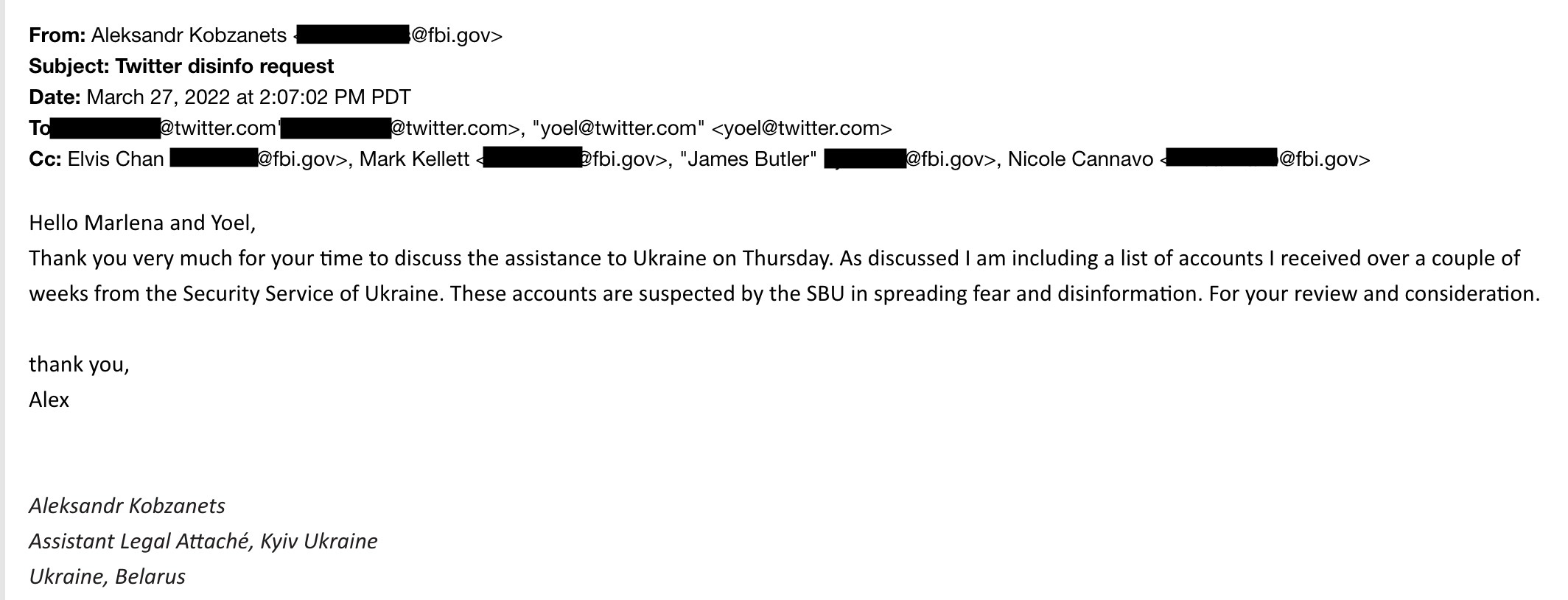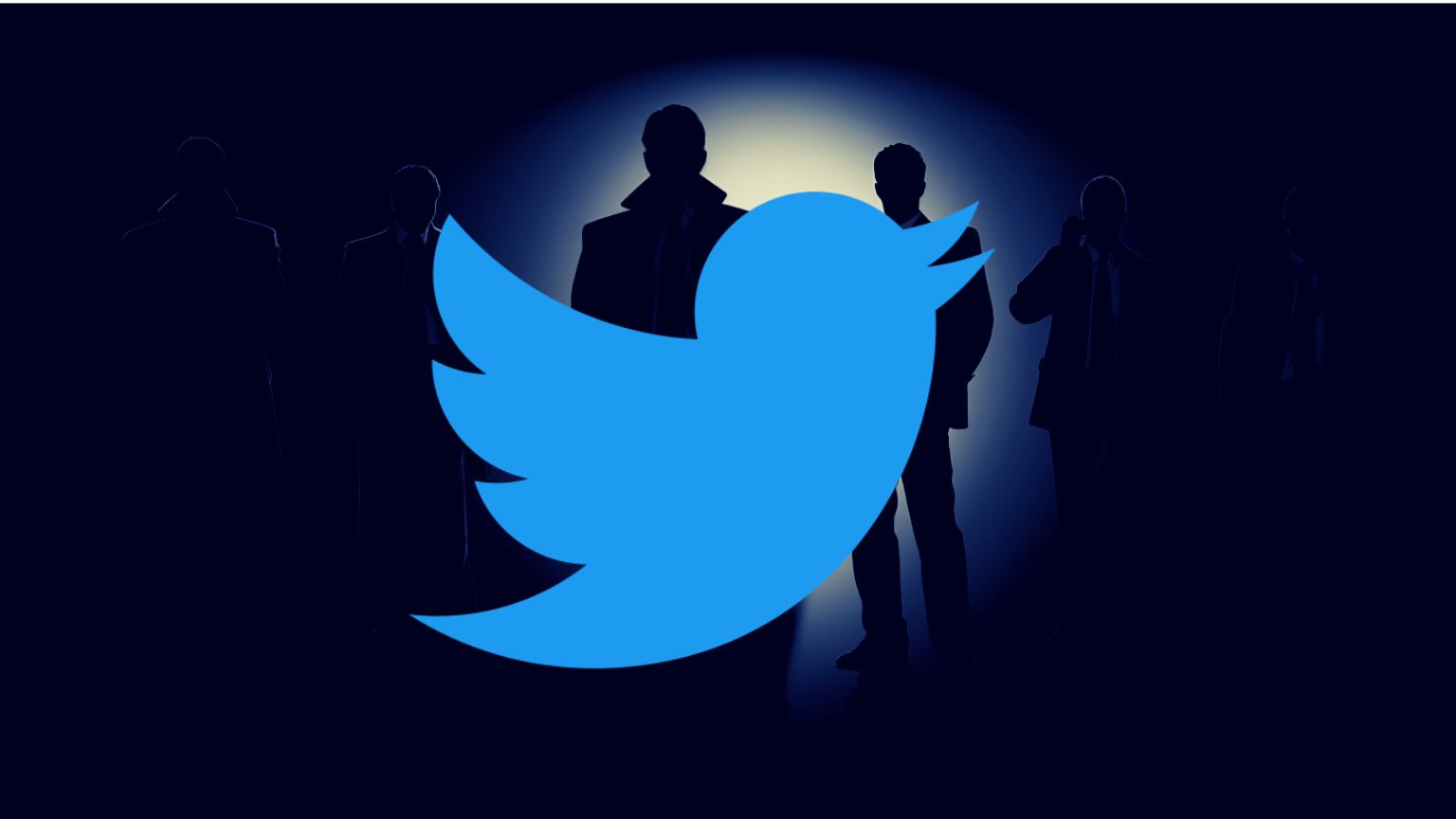Leaked emails revealed that the FBI helped a Ukrainian intelligence agency to censor Twitter users. Some of the people that were targeted are American and Canadian journalists, raising First Amendment concerns.
Previous reports have already covered how the FBI was approached to aid in online censorship regarding the Ukraine war.
In March 2022, a special agent at the FBI sent Twitter a list of accounts that “are suspected by the SBU [Ukraine’s intelligence agency] in spreading fear and disinformation.” The email included a memo from the SBU requesting that Twitter ban the accounts and provide their user data, according to a Twitter Files report by Aaron Maté.
The email to Twitter was sent by Special Agent Aleksandr Kobzanets, the assistant legal attaché at the American embassy in Ukraine.
“Thank you very much for your time to discuss the assistance to Ukraine,” Kobzanets wrote. “I am including a list of accounts I received over a couple of weeks from the Security Service of Ukraine.
“These accounts are suspected by the SBU in spreading fear and disinformation. For your review and consideration.”


The SBU said that the accounts have been “used to disseminate disinformation and fake news to inaccurately reflect events in Ukraine, justify war crimes of the Russian authorities on the territory of the Ukrainian state in violation of international law.”
The agency continued to say that “to stop Russian aggression on the information front,” Twitter should “take urgent measures to block” the accounts “and provide us with user data specified during registration.”
Twitter said that it would review the accounts’ “inauthenticity” but questioned the inclusion of Canadian and American journalists in the list. The list included 163 accounts.
Twitter’s head of Trust and Safety at the time, Yoel Roth, said the accounts would be reviewed but the first order of business would be to identify potential inauthenticity because the list included American and Canadian journalists.
Roth said that authentic accounts would be suspended if it obtained evidence that they were tied to foreign governments. He continued to say that reporters “who cover the conflict with a pro-Russian stance are unlikely to be found in violation of our rules absent other context that might establish some kind of covert/deceptive association between them and a government.
“Any additional information or context in those areas is of course welcome and appreciated,” Roth added.
Kobzanets replied that it was unlikely for more information to be provided.
34 of the 163 accounts were banned, 20 have since been deactivated while the rest are active.










